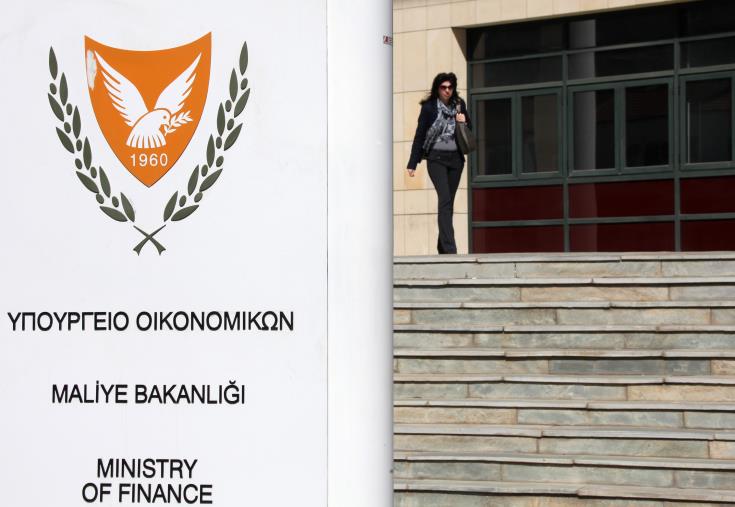Moody’s expects government financial support for affected businesses and households, in addition to ECB measures and Central Bank of Cyprus moves, to help limit the coronavirus-related impact on banks’ asset quality and profitability.
The financial support package of €700 mln is equivalent to 3% of GDP, of which €450 mln are fiscal measures and €250 mln is liquidity support with no fiscal effect on government finances.
Financial support for affected businesses and households aims to limit unemployment and help maintain domestic consumption, and support tourism during the peak summer months and to extend the tourism season beyond October.
“Materially slower economic activity amid the disruption from the coronavirus particularly in the first half of the year amid a sustained pullback in consumption, coupled with measures such as stricter travel requirements and restrictions, and closures of non-essential businesses, are credit negative for banks,” said a Moody’s analysis.
Lessons from China also suggest that the economic recovery after the virus peaks will be slow and difficult.
“The virus-related economic slowdown adds to banks existing asset quality and profitability challenges amid weaker lending activity, fewer fee-generating transactions, and the higher cost of credit.”
The rating agency said all domestic banks are exposed, even those whose business orientation is outside Cyprus, given the global pandemic.
Cyprus’ financial support package aims to limit the longer-term negative economic effects on the economy by supporting affected businesses, so they remain viable, limiting layoffs and maintaining consumption.
“These measures, in conjunction with efforts to arrest the spread of the virus and, perhaps, warmer weather in the spring and summer, will likely allow economic activity to gradually pick up in the second half of the year.”
“The full extent of the economic costs and effect on banks will be unclear for some time, however.”
Moody’s argued the longer it takes for the spread of the virus to peak, and for households and businesses to resume normal activity, the greater the economic effect and the more severe consequences for banks’ loan quality and profitability.
Tourism halted
Lower travel and tourism globally are also negative for Cypriot banks. Travel restrictions and hotel closures until the end of April 2020 have effectively halted Cyprus’ tourism.
“We estimate that tourism and travel directly contributed around 7% to Cyprus’ GDP and employment in 2018 while including the indirect effect its contribution is closer to 22% according to the World Travel & Tourism Council.”
Bank of Cyprus with 36% of total banking system assets as of September 2019, and Hellenic Bank 28% of assets, are most exposed among rated banks, said Moody’s.
Around 7% of Bank of Cyprus’ loans and 6% of Hellenic bank’s loans were to the broader travel and tourism sector as of year-end 2018. RCB Bank is less exposed with around 2% of loans.
“The government’s measures aim to quickly stop the spread of the coronavirus, to financially support tourism-related businesses to remain viable in the short-term and to jump-start the tourism to resume and rebound during the peak summer months, and extending the tourism season beyond October.”
How successful the measures will be is unclear for tourism, because it also depends on how quickly the virus’ spread abates, particularly in the UK and Russia, which account for more than half of tourist arrivals in Cyprus.
“Weaker economic growth, increased uncertainty in the next few months and reduced risk appetite means that planned problem loan sales for 2020 will be more difficult.”
“This is likely to stall any material improvement in the bank’s asset quality metrics and credit profiles, which otherwise would have countered potential deterioration from the coronavirus.”
On 20 January, Central Bank of Cyprus Governor Constantinos Herodotou told the parliamentary committee on financial affairs that Bank of Cyprus and Hellenic Bank were actively pursuing sales of €4 billion of problem loans.
As of September 2019, 31.3% of Bank of Cyprus’ gross loans were nonperforming; and 25.2% of Hellenic Bank’s were nonperforming.
“Consequently, credit risks will remain elevated because of the high stock of problematic debt and accumulated property, which will take time to reduce, and uncertain recovery values that pose risks to profitability and capital.”
On 16 March, Bank of Cyprus announced additional provisions of around €75 mln as part of the group’s fourth-quarter financial results, with a negative capital effect of around 45 basis points.
Positively, the ECB’s temporary suspension of buffer requirements for regulatory capital will allow banks to temporarily operate below the level of capital defined by the bank-specific Pillar 2 Guidance, and the 2.5% capital conservation buffer.
“This will temporarily protect the banks from potential higher credit losses related to their large stock of NPEs or as a consequence of the coronavirus-related asset quality effect,” said Moody’s.
The central bank expects the release of around €1.4 bln in capital reserves on aggregate for Cypriot banks.










